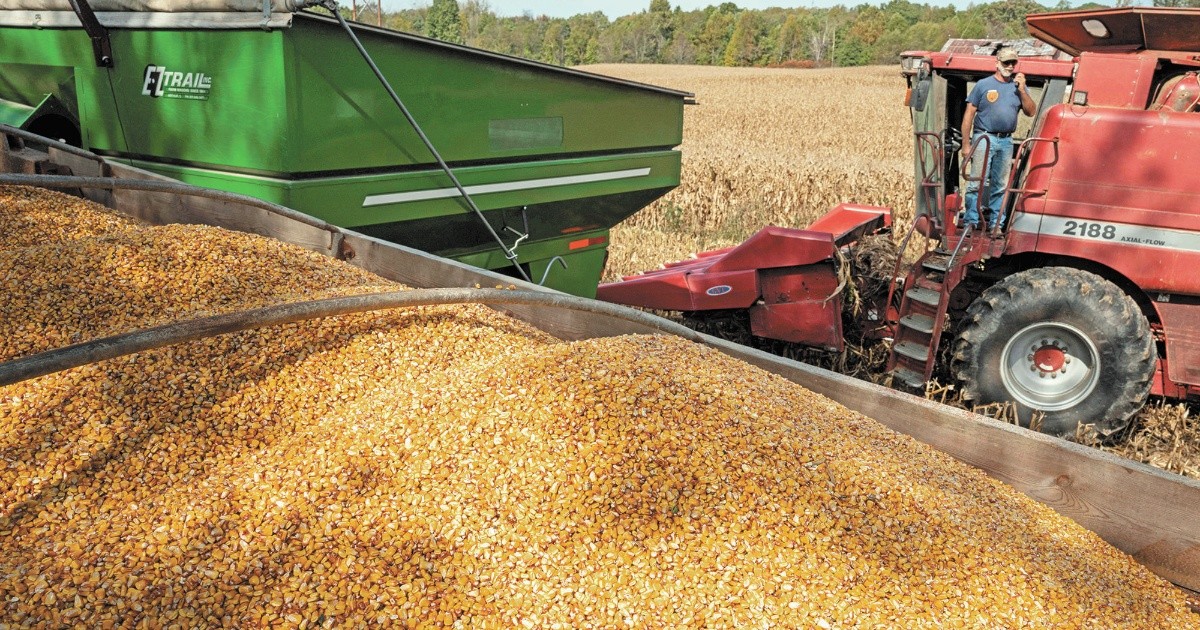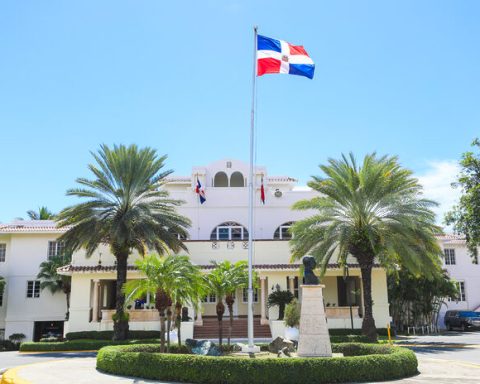The Mexican government issued a new decree of actions regarding glyphosate and genetically modified corn (transgenic) in which it clarifies that the importation of this type of grain will be allowed for animal feed and for industrial use of human food – except for mass production and tortilla–, always under the authorization of the Federal Commission for the Protection against Sanitary Risks (Cofepris).
A previous decree, issued in December 2020, set January 31, 2024 as the limit for the import of transgenic corn, without it being clear if reference was made to the one intended for livestock and industrial use or solely for human consumption.
For this reason, the United States government warned on various occasions in recent months that the application of said provision could constitute a violation of the Mexico-United States-Canada Treaty (T-MEC), by proposing a phytosanitary barrier to the yellow corn trade without a scientific basis.
The new decree, published this Monday afternoon in the Official Gazette of the Federation (DOF), proposes the elimination of the date of January 31, 2024 as the limit to end imports of transgenic corn for livestock and industrial uses.
It establishes that the purpose of substituting transgenic corn in Mexico is maintained, but no longer establishes a critical date for such effect.
“While the substitution referred to in the preceding paragraph is achieved, the Federal Commission for the Protection against Sanitary Risks may grant authorizations for genetically modified corn for animal feed and industrial use for human food, being the responsibility of whoever uses it in Mexico to does not have the destination foreseen in section III of the second article of this ordinance”, reads the seventh article of the decree.
Section III of the second article of the legal system distinguishes corn for human consumption, which it describes as that which is intended for the preparation of tortillas.
In 2022, Mexico imported around 16.5 million tons of yellow corn –primarily transgenic– which represented around 75% of the national supply. Cattle feeders represented, in turn, almost 80% of national consumption.
In the eighth article of the new ordinance it is also added that “the relevant scientific studies will be carried out, for which Cofepris will integrate a joint investigation protocol so that, under its coordination, it is carried out by said entity and the equivalent instances from other countries a study on the consumption of genetically modified maize and the possible damage to health”.
Last week the US government summoned its Mexican counterpart to explain the scientific foundations behind its intention to ban the use of glyphosate and restrict imports of transgenic corn.
In mid-January, a delegation of US government officials met in Mexico with their Mexican counterparts to review the adjustments to the decree originally issued in December 2020, but at the end of their visit the US government made it known that the changes did not yet meet their needs. concerns, for which reason it reserved the right to assert its claims through the dispute resolution mechanism of the T-MEC.
“The objective of this new Decree is to specify the objective and scope of public policies, as well as to eliminate any possible imprecision of the predecessor text, which lent itself to different interpretations. With this new version, clarity is provided in its objectives and regulatory certainty based on technical-scientific evidence,” said the Ministry of Economy in a statement on Monday night.
The agency stressed that the decree decreed that, in coordination with the health agencies of other countries, Cofepris will carry out scientific research on the possible impacts on people’s health of genetically modified corn.
“With this, Mexico reiterates its commitment to comply with the T-MEC, according to which phytosanitary decisions must be based on scientific evidence,” he said.
No to planting or glyphosate
On the other hand, the decree also reinforces the prohibition of the planting of transgenic corn and in its sixth article it establishes that the biosafety authorities “will revoke and refrain from granting permits for the release into the environment in Mexico of genetically modified corn seeds.” ; as well as “revoke and refrain from granting authorizations for the use of genetically modified corn grain for human consumption.”
It also maintains the ban on glyphosate after March 31, 2024, the date from which government agencies will revoke and refrain from granting authorizations and permits for the import, production, distribution, and use of the herbicide.















